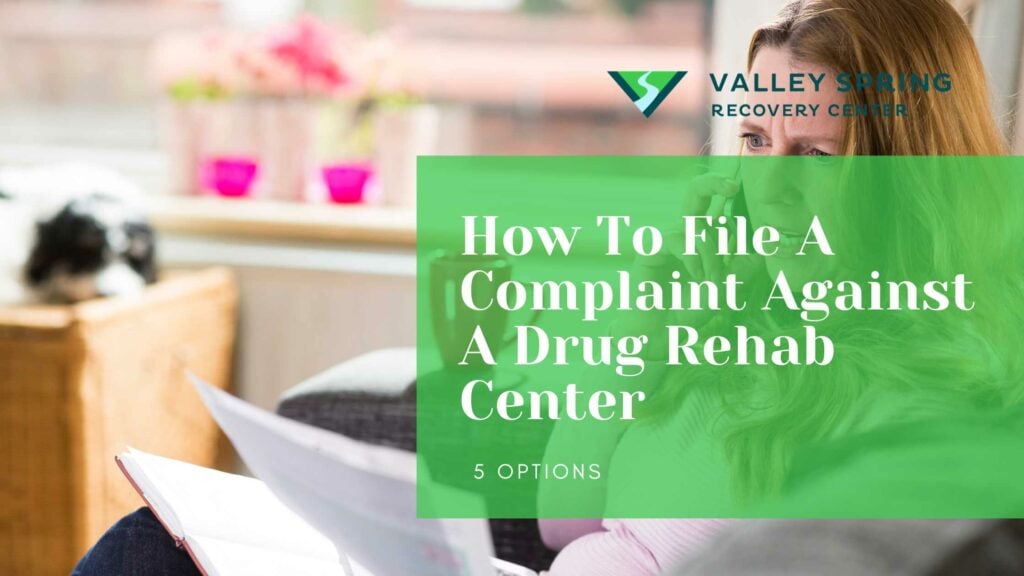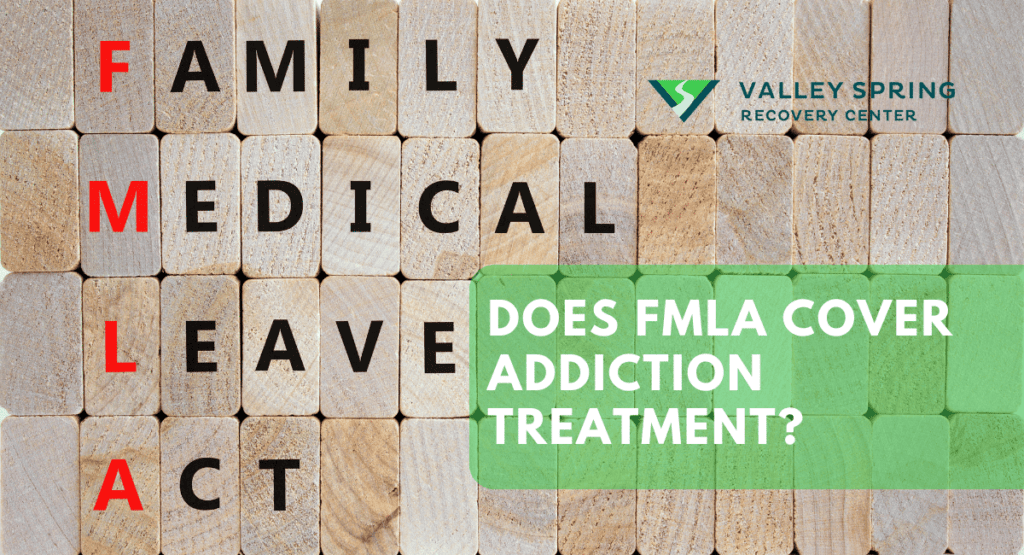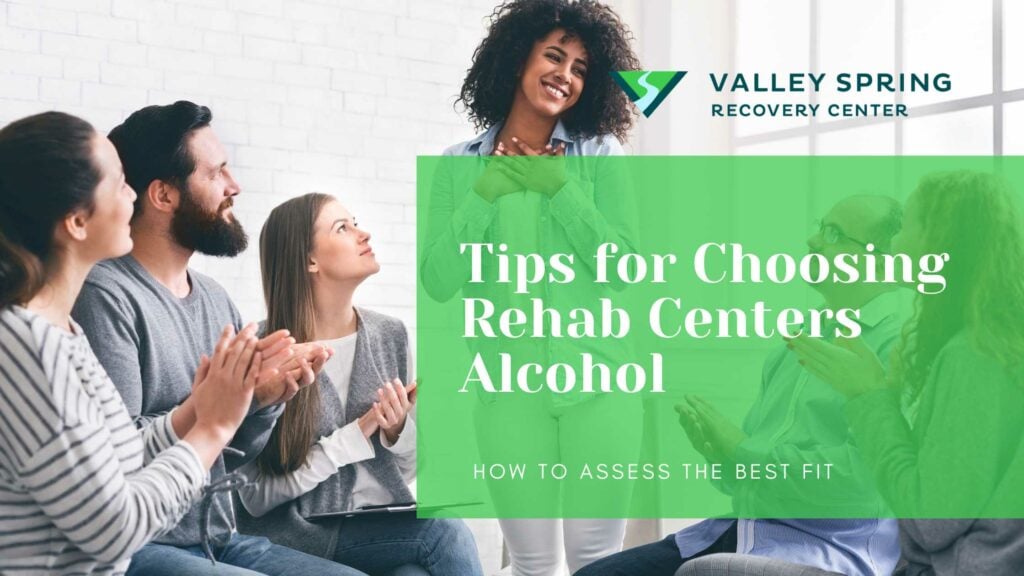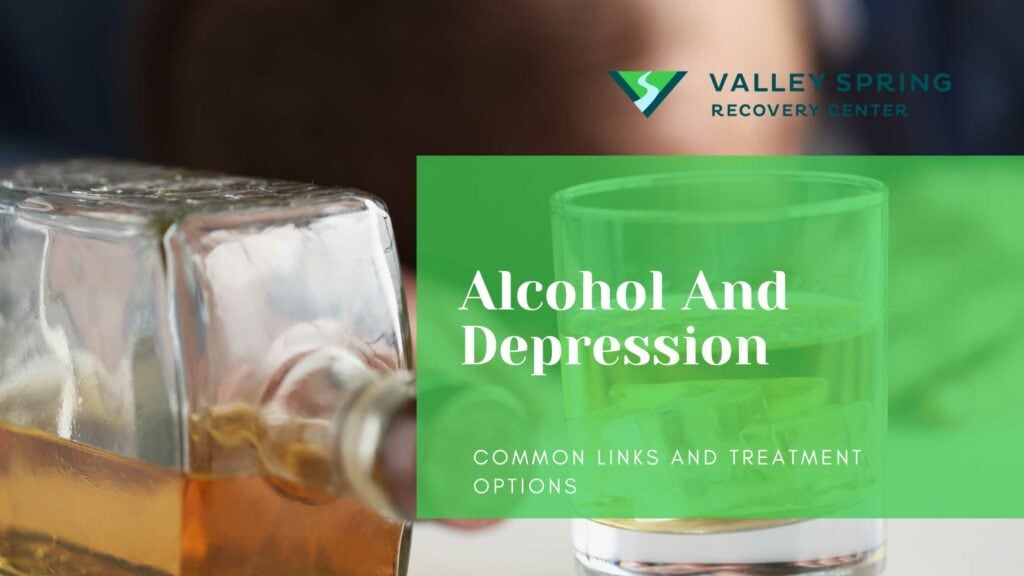Imagine entrusting your loved one to a drug rehab facility, only to discover that something is not quite right. More than 70% of U.S. adults say the healthcare system fails them in some way, according to data from the Harris Poll. If you had a negative treatment experience and serious concerns about patient safety, or the treatment being provided, there are ways to voice your concerns and make a difference. There are several outlets to make complaints against a drug rehab center including:
- Discussing directly with the facility through an internal complaint processing system
- Seeking assistance from an accrediting body like CARF, JCAHO, or the state DCF office
- Legit Script is a verification body that allows drug rehab centers to market and advertise who also has a complaints process

How to File a Complaint Against a Drug and Alcohol Rehab Center
The steps to file a complaint against a drug rehab facility as outlined by NAATP are listed below:
- Contact the treatment center. Most treatment facilities have an internal complaint process. Contact information may be found in the NAATP Membership Directory.
- Contact the accrediting body. This is typically CARF (Commission on Accreditation of Rehabilitation Facilities) or The Joint Commission. Accrediting bodies require that treatment centers deliver care pursuant to specific quality and safety standards.
- Contact the State Licensing Agency or State Counselor Licensure Board. Addiction treatment should only be delivered if the agency is licensed to deliver a specific service. Treatment centers and their professional employees are usually licensed by the state in which the center does business. Contact the state licensing agency to file a complaint or to speak with someone about your concerns.
- File a complaint by contacting the State Better Business Bureau. The Treatment Center must be registered with the BBB in order to file a formal complaint.
- File a complaint with the Federal Trade Commission. If your complaint is related to marketing misrepresentations, such as false statements, or other deceptive marketing practices, you can file a Consumer Complaint with the FTC. The Opioid Addiction Recovery Fraud Prevention Act of 2018 (HR-6), authorizes the Commission to seek civil penalties for unfair or deceptive acts or practices with respect to any substance use disorder treatment service or substance use disorder treatment product.
- File a complaint with LegitScript. If the organization is Certified by LegitScript, and your complaint is potentially violative of the LegitScript Certification Standards.
- File a complaint with NAATP by using the online form linked at the bottom of the page.
While the process of filing a complaint against a drug rehab facility may seem intimidating, becoming familiar with the process can help alleviate some of that stress. The complaint process involves identifying the responsible authority, gathering necessary information, and choosing the appropriate reporting method.
The goal is to ensure that healthcare facilities maintain ethical conduct, address concerns, and provide a safe environment for those in treatment.
How To Identify the Responsible Authority?
The first step in filing a complaint is determining which authority oversees the drug rehab facility in question. This may depend on the state in which the facility is situated and the specific regulations related to drug and substance abuse treatment.
Some organizations responsible for accrediting drug rehab facilities on a national scale are CARF (Commission on Accreditation of Rehabilitation Facilities), the Joint Commission, and NAATP (National Association of Addiction Treatment Providers). These accrediting bodies ensure that identifying the correct authority guarantees that your complaint reaches those who are equipped to resolve the issue effectively.
Gathering Necessary Information
After identifying the responsible authority, the next step is to collect the information needed to back up your complaint. This includes the facility’s name and location, dates and times of specific incidents, and any individuals involved. Be thorough and objective in your documentation, using clear language and providing specific details.
Bear in mind, precise and unbiased records are key in addressing and resolving issues at a drug rehab facility.
Selecting a rehab facility that aligns with your specific treatment needs is crucial for the success of your rehabilitation journey. This step in your recovery journey is of utmost importance. Read our complete guide on how to find a rehab (links to article on “how to find a rehab”) to learn more about a few things you must consider before entering a rehab.
Reporting Addiction treatment Efficacy Concerns During Normal Business Hours

If you choose to report your concerns within regular business hours, you have two main options: phone and email reporting. Both methods have their own advantages, and the choice ultimately depends on your personal preference and comfort level.
Phone Reporting
Phone reporting allows for direct communication with the responsible authority, which can be helpful when discussing your concerns. When making a telephone report, be prepared to provide the necessary information, such as the name and location of the drug rehab facility, the date and time of the incident, and a description of the issue. You should follow specific codes of conduct while reporting a private addiction treatment facility, or one that is funded by the state, including immediately reporting any instances of abuse or neglect, and reporting any unethical conduct or unprofessional practices.
If you wish to remain anonymous, numerous rehab programs and hotlines provide confidential services for reporting concerns related to drugs.
Email Reporting
Email reporting offers the advantage of providing a written record of your complaint, allowing for easy submission of supporting documents. This method ensures that all important details are accurately captured, preventing misunderstandings and facilitating a more efficient resolution process.
A clear record of your concerns enables the implementation of suitable steps to address the issues and safeguard the patients’ well-being in the facility.
Filing a Complaint Anonymously

You may wish to file a complaint anonymously to protect your identity, especially in sensitive situations. There are several ways to file an anonymous complaint, such as:
- Contacting SAMHSA’s National Helpline
- Using the NAATP’s complaint process for ethical conduct review
- Contacting the relevant regulatory agency in your state.
Remember, even when staying anonymous, it’s important to provide as many details as possible for the authorities to carry out an effective investigation and address your concerns.
Contacting State Departments for Substance Abuse Services
If you’re facing concerns about a drug rehab facility, it’s essential to contact your state’s department for substance abuse services. These departments have the responsibility of regulating and monitoring drug rehab facilities in the state, ensuring that they adhere to proper standards and practices. Reporting your concerns can aid in initiating an investigation and triggering any required action.
To locate contact information for your state’s department for substance abuse services, visit the website of your state’s department of health or human services, or search for ‘state name + department of children and family services’.
Reporting Allegations of Neglect or Abuse
It’s imperative to relay any allegations of neglect or abuse to the relevant authorities, such as the state’s adult protective services or child protective services. Agencies like Child Protective Services (CPS) are responsible for investigating reports of neglect or abuse at drug rehab facilities and taking appropriate measures to ensure the safety and well-being of the affected individuals.
Reporting these allegations not only helps protect the individuals involved but also holds the facility accountable for its actions, potentially leading to disciplinary action.
If you are contemplating whether you need the services of an addiction treatment facility to treat your substance abuse issue, read our article on do i need to go to rehab, where we discuss a number of self-reflective questions to help you make the final decision.
Understanding the Investigation Process
After filing a complaint, gaining an understanding of the investigation process can be beneficial. The process may differ depending on the organization or regulatory body in charge, but some common steps include:
- Submitting a complaint
- Reviewing and assessing the complaint
- Conducting an investigation
- Analyzing the results
- Reaching a resolution
Keep in mind that the length of the investigation process may vary depending on the specific circumstances and the governing body responsible for the investigation.
Monitoring Progress and Follow-Up
Once a complaint has been filed, you should:
- Track its progress
- Communicate with the responsible authority as necessary
- Establish regular communication
- Maintain documentation of all correspondence
- Follow up regularly to ensure that your concerns are being actively investigated and addressed.
If required, consider obtaining legal advice from a professional specializing in healthcare or consumer rights for a better understanding of your options and rights during the complaint process.
Additional Resources for Support
In addition to the complaint process, there are other resources available to support you in addressing concerns with a drug rehab facility. Renowned patient advocacy groups for substance abuse rehabilitation, such as SAMHSA, ASAM, and Narcotics Anonymous, can provide valuable assistance and guidance.
Feel free to seek help from these organizations in managing the complex process of filing a complaint and advocating for the safety and well-being of those under treatment.
The Intersection of Legal Consequences and Rehabilitation
Substance abuse can lead individuals into a tangled web of legal troubles, prompting courts to explore alternative solutions beyond traditional punitive measures. One such intervention is court-ordered rehabilitation , a relatively common practice in the justice system. When individuals find themselves entwined with the law due to offenses related to substance abuse, judges often view rehabilitation as a strategic approach to tackle the underlying issues that contribute to criminal behavior.
Court-ordered rehab is not merely punitive; it is a recognition that addiction may be at the core of certain criminal activities. Rather than solely focusing on punishment, the legal system acknowledges the need to address the root causes of an individual’s behavior. By mandating rehabilitation, the court aims to provide an opportunity for the individual to confront and overcome their substance abuse issues, ultimately breaking the cycle of criminal behavior linked to addiction.
What are the chief complaints of drug addiction?
Drug addiction is characterized by an intense craving for the drug, increased tolerance and withdrawal symptoms when abstaining from the substance. It can also involve taking larger amounts of a drug over a longer period than intended.
Who regulates sober living homes in California?
The California Department of Health Care Services regulates sober living homes in the state, providing oversight for services such as job training and drug testing.
Is methadone regulated?
Methadone is regulated through specific treatment programs for opioid use disorder, as it has been the primary option since before 2002. Buprenorphine is another available option.
Does methadone cause impairment?
Methadone is a controlled substance with the potential to cause severe mental and physical impairment if abused. Consumption of methadone has been found to induce cognitive impairment, suggesting it can cause impairment when used inappropriately.
How do I determine which authority oversees the drug rehab facility I want to file a complaint against?
To determine the authority overseeing the drug rehab facility you want to file a complaint against, consider the state in which it is located and relevant regulations related to drug and substance abuse treatment. National organizations such as CARF, the Joint Commission, and NAATP may also be responsible for accrediting the facility.
Ben Fisher
All author postsShare This Post











1 comment
Tomekia Sullivan
My name is Tomekia Sullivan and I am a 8 time gunshot wound Survivor in Mississippi. After my release from the hospital, I was accepted to Jacob Wells Recovery Center in Poplarville Ms on December 21,2017 for long term treatment but was inhumanely discharged on December 26,2017 after paying $500.00,for no reason by Pastor Joanne Graham. I was driven 90.4 miles away from my home and dumped out at a hospital in a strange town with my suitcase walker and 1.00 paper dollar. I have filed 17 complaints about this and no one seems to care or lead me to who can. I found the crime is called patient dumping, it’s illegal to keep the whole $500 because no service rendered and technically JWRC breached contract so they owe me. I have no statue of limitations for my hurt and pain caused by the inhumane way I have been treated and would like to press charges and receive equal results as an animal under code 97-41-1. If you have any recommendations on how I can help myself please feel free to contact me at 601 466 7741 or email [email protected]. Thank you for your time and consideration in this matter and God Bless you and your family.